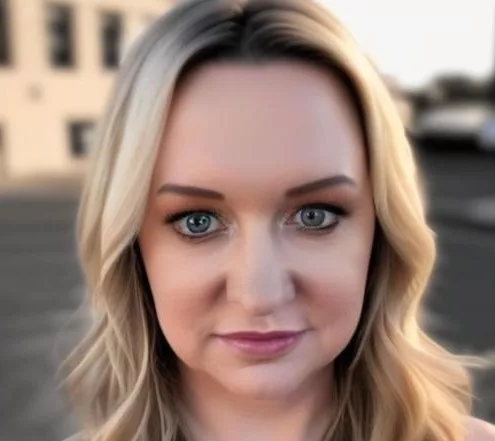Key Takeaways
- Understanding Alcohol-Induced Blackouts: These occur when heavy drinking impairs memory formation, leading to gaps in memory for events that happened while intoxicated.
- Connection to Alcohol Use Disorder: Frequent blackouts can indicate a severe alcohol use disorder, highlighting the need for intervention.
- The Dangers of Blackouts: Blackouts pose immediate risks like accidents and long-term damage to the brain and overall health.
- Recognizing the Need for Alcohol Addiction Treatment: Experiencing blackouts should prompt individuals to seek professional help.
Introduction
Alcohol-induced blackouts are a dangerous and somewhat underestimated effect of excessive alcohol consumption. While passing out, an individual is unconscious; blackouts happen when a person is awake and even functional but cannot recall events that occurred. These memory lapses are often the first signs of alcoholism and may mean that the person needs help for alcohol addiction. It is essential to know what leads to blackouts and how they are related to alcohol use disorder so that one can tell when it is time to get help.
What Are Alcohol-Induced Blackouts?
An alcohol-induced blackout happens when alcohol interferes with the brain’s ability to form new memories. During a blackout, a person may engage in conversations, perform tasks, and appear to function normally, but later, they cannot recall any of these events. This occurs because excessive alcohol consumption disrupts the activity of the hippocampus, the part of the brain responsible for creating and storing memories. As a result, while a person may seem conscious and aware, their brain is not recording what’s happening.
It is crucial to distinguish between blacking out and passing out. Passing out is a state of total blackout, which is caused by consuming a large amount of alcohol while blacking out is a state of memory loss while still being conscious. Blackouts can be partial, where only some parts of events are erased, and complete, where whole chunks of time are missing.
The Connection Between Blackouts and Alcoholism
Frequent blackouts are a clear indication of alcohol use disorder, a situation where an individual is not able to stop the consumption of alcohol even if they experience negative impacts. Blackouts are a condition that results from consuming a lot of alcohol within a short time, and the body cannot handle it. This is typical of people with alcohol use disorder since they may build up a tolerance that requires them to take in more alcohol to get the desired results.
Suffering from blackouts often is a strong indication that alcohol is causing harm to the brain and the body in general. It indicates that the person may be on the wrong track toward developing alcohol dependence and addiction. If these warning signs are not heeded, the symptoms will worsen, and the addiction will become more profound and, thus, more challenging to overcome.
The Dangers of Alcohol-Induced Blackouts
Alcohol-induced blackouts are not only memory loss but have many other consequences. During a blackout, people can engage in risky activities such as driving, having unprotected sex, or even fighting, and the next day, they will not even remember it. This can lead to severe repercussions, including legal problems, physical assault, or even death.
Furthermore, the consequences of blackouts in the long run can be disastrous, as has been seen in the past. Alcoholism that results in blackouts on the regular can result in brain damage that affects learning and memory. This can lead to memory problems, poor problem-solving skills, and an inability to concentrate or pay attention for long periods.
Blackouts also have an impact on the mental health of people as they also affect society. The fear and stress that are caused by the inability to recall events in one’s life can worsen the feelings of depression and isolation, which are common in alcohol use disorder.
Recognizing the Need for Alcohol Addiction Treatment
If you or someone you know is having blackouts more than once in a while due to alcohol consumption, this is something that needs to be addressed by a professional. Blackouts are not simply a result of excessive drinking; they are an indication that alcohol is damaging the brain and that the person in question may be suffering from alcohol use disorder.
It is advisable to seek alcohol addiction treatment as early as possible to avoid worsening the situation and to enable the affected person to get back to everyday life. Rehabilitation facilities such as Virtue Recovery Killeen provide a holistic approach to treating the disease where the body and the mind are treated. This includes detoxification, therapy, and support groups that assist the patient to identify his or her addiction and learn how to avoid relapse.
Support at Virtue Recovery Killeen
At Virtue Recovery Killeen, we offer individualized treatment plans tailored to the specific needs of the person in question. We believe in treating alcohol addiction as a whole, treating the cause of the addiction while also helping the patient recover mentally and physically. Our well-trained staff will assist you in your recovery journey from when you enter our detoxification program to when you are ready to enter long-term care.
We know that the process of recovery from alcohol use disorder is a difficult one. Still, it is not an impossible one, and people can indeed go on to live happy and healthy lives without alcohol. If you are having alcohol-induced blackouts, it is high time you sought help, and we are here to assist you.
Conclusion
Alcohol-induced blackouts are one of the most dangerous effects of alcohol consumption and a definite sign of alcohol dependence. These memory lapses are suggestive of brain injury and also put the patient at a higher risk of undertaking risky activities. It is, therefore, essential to identify the symptoms and get help for alcohol addiction to avoid more damage and begin the process of healing. If you or a family member is having problems with alcohol blackouts, contact Virtue Recovery Killeen at 855-788-5582 for help. We are here to assist you in making that first move towards a better, cleaner, and sober lifestyle.
FAQs
What causes alcohol-induced blackouts?
Alcohol-induced blackouts are a condition that results from alcohol consumption, impairing the brain’s capacity to create new memories while the person is still conscious.
How are blackouts different from passing out?
Blacking out is a condition where one cannot recall events while still being conscious while passing out. It is a state of unconsciousness that is brought about by overconsumption of alcohol.
Are frequent blackouts a sign of alcohol use disorder?
Yes, frequent blackouts are a clear indication of alcohol use disorder, and this is because alcohol is severely affecting the brain and the body.
Can blackouts cause permanent damage?
Yes, frequent power failures can cause irreversible harm to the brain, affect one’s thinking process, and may also result in mental disorders.
How can Virtue Recovery Killeen help with alcohol addiction treatment?
Virtue Recovery Killeen provides a full range of services that are designed to treat the body and mind of a patient suffering from alcohol dependence and help him or her get better.
What is the Connection Between Alcohol-Induced Blackouts and the Use of Blood Thinners?
The risks of combining alcohol with blood thinners can lead to alcohol-induced blackouts. When alcohol is consumed while taking blood thinners, it can increase the risk of bleeding and exacerbate the effects of alcohol on the body. This combination can potentially lead to dangerous situations and health complications.
Resources
https://www.ncbi.nlm.nih.gov/pmc/articles/PMC6668891/
https://health.clevelandclinic.org/brownout-vs-blackout
- About the Author
- Latest Posts
Nicki Lugo is currently employed as Clinical Director at Virtue Recovery Center in Las Vegas. Nicki is a licensed clinical professional counselor (CPC) in the state of Nevada and a licensed associate counselor (LAC) in the state of Arizona. She is also a licensed clinical alcohol and drug counselor (LCADC) in Nevada. Additionally, Nicki has specialized training in treating trauma and is a certified clinical trauma specialist (CCTS).
Nicki has earned a Master of Science degree in Psychology with an emphasis in Behavioral Health from the University of Phoenix and a Master of Science in Professional Counseling from Grand Canyon University. Currently, Nicki is pursuing a Doctor of Philosophy (PhD) in Counseling Education and Supervision at Grand Canyon University. Nicki’s research interests include the use of Positive Psychology interventions with dual diagnosis clients. Nicki hopes to contribute to the body of knowledge in treating substance use disorders.
Nicki’s long-term career goals include advancing in leadership roles within Virtue Recovery Center which is a quickly growing substance use disorder treatment facility. She hopes that one day her research and advocacy will help to save the lives of those who have been affected by substance use. She likes to say that advocacy is her passion and leadership is her superpower.









